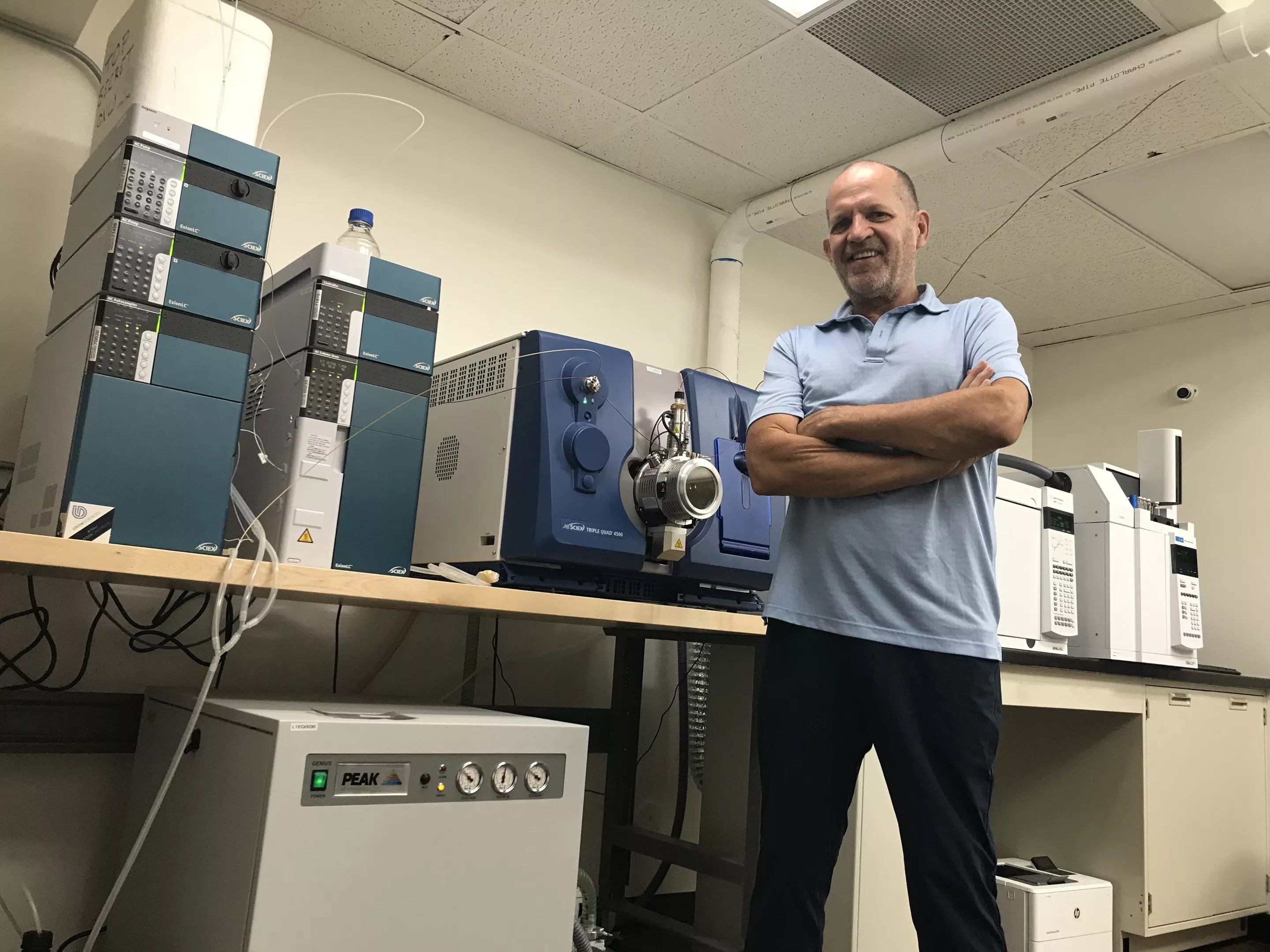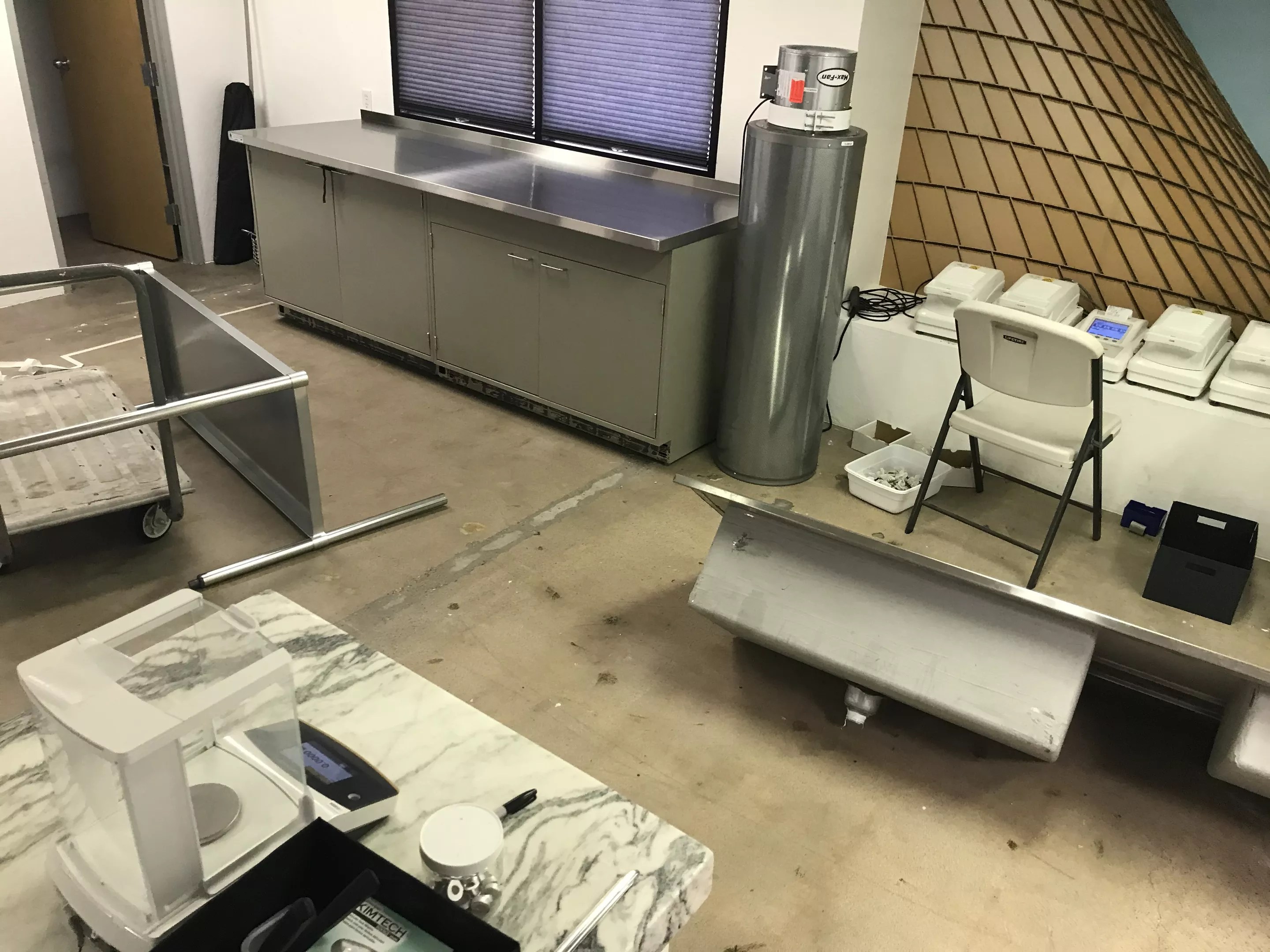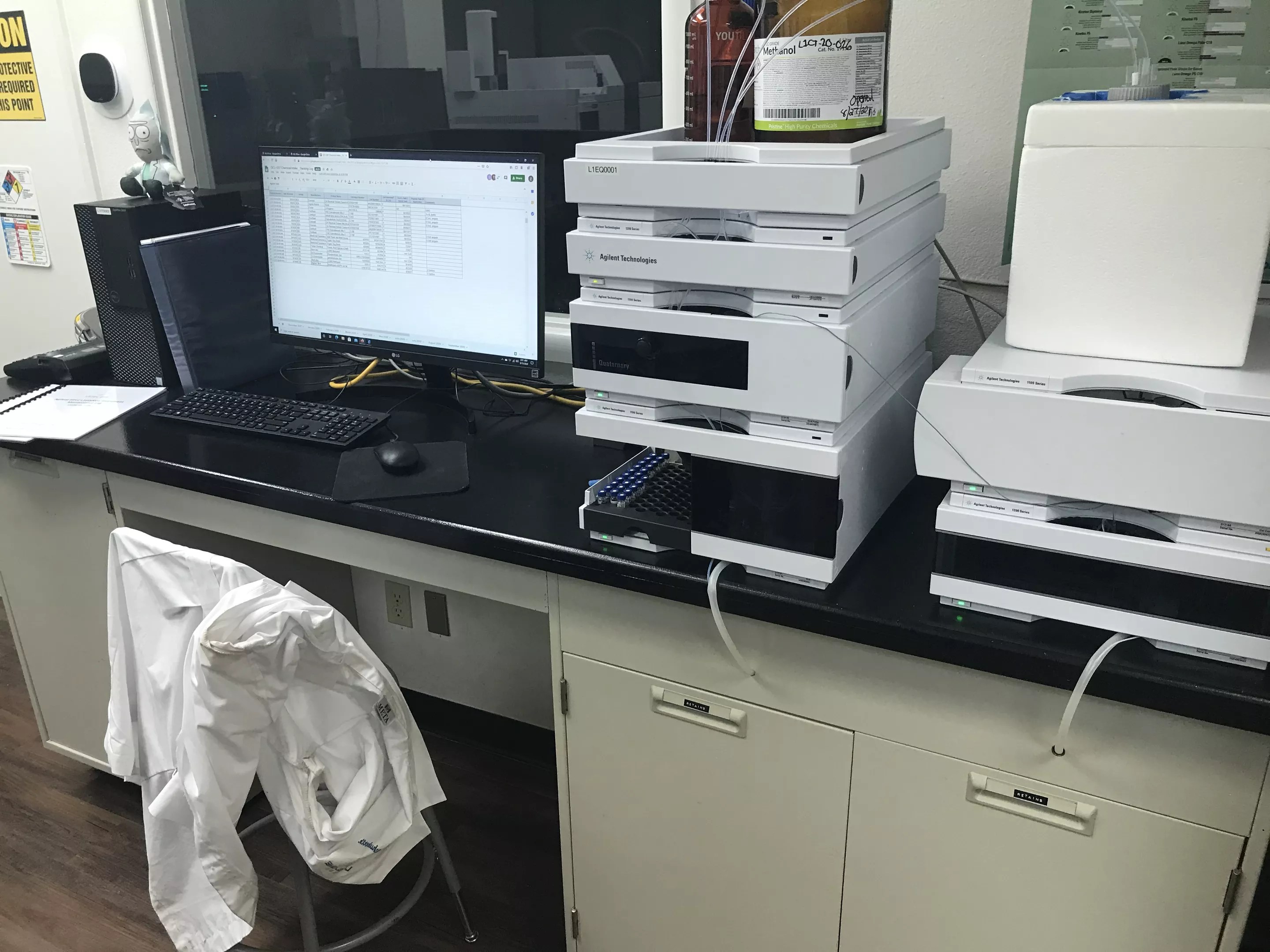
Erasmus Baxter

Audio By Carbonatix
In a nondescript office park in Scottsdale, George Griffeth is getting ready.
Seven-hundred-pound marble tables for high-precision scales, stainless-steel lab equipment, and a multi-thousand-dollar dishwasher are scattered about, set to be part of one of Arizona’s first state-approved medical marijuana testing facilities.
Griffeth has been running a lab for two years out of another, smaller, office in the complex. But as November 1 approaches, and with it the requirement that all cannabis sold in the state be tested by private laboratories, the attorney-turned-lab-operator is bringing on new employees and tripling the size of his facilities.
He and two other Arizona lab operators told Phoenix New Times they are seeing an influx of interested customers as the deadline grows near, and are staffing up to meet the demand.
“I’m kind of bracing for a little bit of mayhem,” said Jessica Crozier, operations and logistics manager at C4 Laboratories in north Scottsdale, of the pending deadline.
The new testing requirement, mandated in a law signed by Governor Doug Ducey last year, offers undeniable benefits for medical marijuana users in a state that has long lagged behind the rest of the country in offering standards to protect patients from pesticides or other health threats. But representatives of dispensaries and labs expect some disruption in the cannabis market that could mean shortages and price hikes come November.
“It’s going to come down to the wire,” said George Margareti, vice president at Delta Verde Laboratory in north Phoenix.

An office in the process of being converted into a marijuana testing laboratory at Level One Labs in Scottsdale, Sept. 15, 2020.
Erasmus Baxter
Raul Molina, chief operating officer at The Mint, which bills itself as the state’s largest dispensary, is less optimistic.
“The shelves are going to be bare for a minute,” he said. Molina says the company is already seeing longer turnaround times for testing and is trying to stock up on products to offset delays as laboratories handle increased workloads.
Sam Richard, executive director of the Arizona Dispensaries Association (ADA), is a little more cautious but said he could see a dispensary only being able to offer 10 strains instead of 30 for a time.
“If we don’t have labs that are up and running by next week or the following week, there’s going to be disruption,” he told New Times last week.
Disruption can have serious consequences. In Oregon, which saw serious delays in 2016 after enhanced testing requirements coincided with the state’s transition to legal retail sales, almost three-quarters of cannabis businesses in one study said they had to increase prices by more than 10 percent. Of the 72 businesses surveyed, nearly a quarter said they were planning on laying off more than five people. Sixteen said they were going out of business.
“The ones that got left behind were the small ones who didn’t have as much sway with the laboratories,” said Beau Whitney, whose company Whitney Economics conducted the survey. Large companies were able to shut out smaller competitors by swarming laboratories with their product, he said.
In Arizona, there are several potential issues come November, people in the industry told New Times.
First, nobody knows for sure if labs will have enough personnel or equipment to handle the influx of material they’re about to receive.
Labs are dramatically increasing their capacity, but neither the Arizona Cannabis Laboratory Association, which Griffeth heads, nor the ADA is sure what adequate lab capacity would look like in order to deal with the 18,000 pounds of marijuana products sold in July alone, or even how many of the state’s 122 dispensaries are currently sending products for testing. If anyone were to track that, both associations said, it would be the Arizona Department of Health Services (DHS), which regulates medical marijuana in Arizona. Media contacts at DHS did not respond to requests for information.
Even if laboratories are able to get enough equipment and trained staff in time, they still have to be certified by the state. That means not only bringing equipment and processes up to certain standards but also waiting for state inspectors to make their way through the queue of applicants. All marijuana products sold after November 1 must have been processed at labs that not only met the legal standards but made their way through the associated bureaucracy. As of this week, the state had certified five laboratories. Will that be enough? Again, nobody’s sure.
Once products begin to be tested, some might not pass. That’s what happened in California, said Alex Traverso, the assistant chief of communications for that state’s Bureau of Cannabis Control. While California had 20 labs ready to go by the time the requirements went into effect, some products saw shortages because they couldn’t meet the state standards, he said.
This could be a possibility in Arizona with the state adopting Oregon’s rigorous pesticide standards, Griffeth said.
“You don’t go from no testing to testing the Oregon list with no hitch,” he said.

A work station at Level One Labs in Scottsdale, Sept. 15, 2020.
Erasmus Baxter
Arizona regulators are limited in their ability to mitigate these issues. Both dispensaries and labs praised DHS’s responsiveness to their concerns and noted that the agency has worked to relax some of the more burdensome standards in the interest of having enough lab capacity in time. However, if that doesn’t prove to be enough by November 1, there’s no escape for the industry.
In Oregon, state regulators had to push back requirements by three months, then six months, to ensure there was enough product on the market. A bill that would have given DHS the flexibility to do the same made it through the Arizona House earlier this year but died after legislators adjourned early due to COVID-19. Unless the legislature reconvenes, there’s little that can be done to change it for now.
Even if disruptions are limited, medical marijuana patients may still see increased costs as dispensaries factor in the price of doing more thorough testing than before. Adding additional uncertainty is the pending legalization initiative that will be on the Arizona ballot in November. Proposition 207 would allow dispensaries to test their own products instead of sending them to labs and increase the volume of products being sold.
Richard stressed that any disruptions will be temporary. He said he expects to see dispensaries communicating with patients more as the deadline approaches, and some patients getting their maximum allowance in advance to prevent issues. Arizona law allows patients to buy up to 2.5 ounces of marijuana every two weeks, but they can possess only up to 2.5 ounces at any given time.